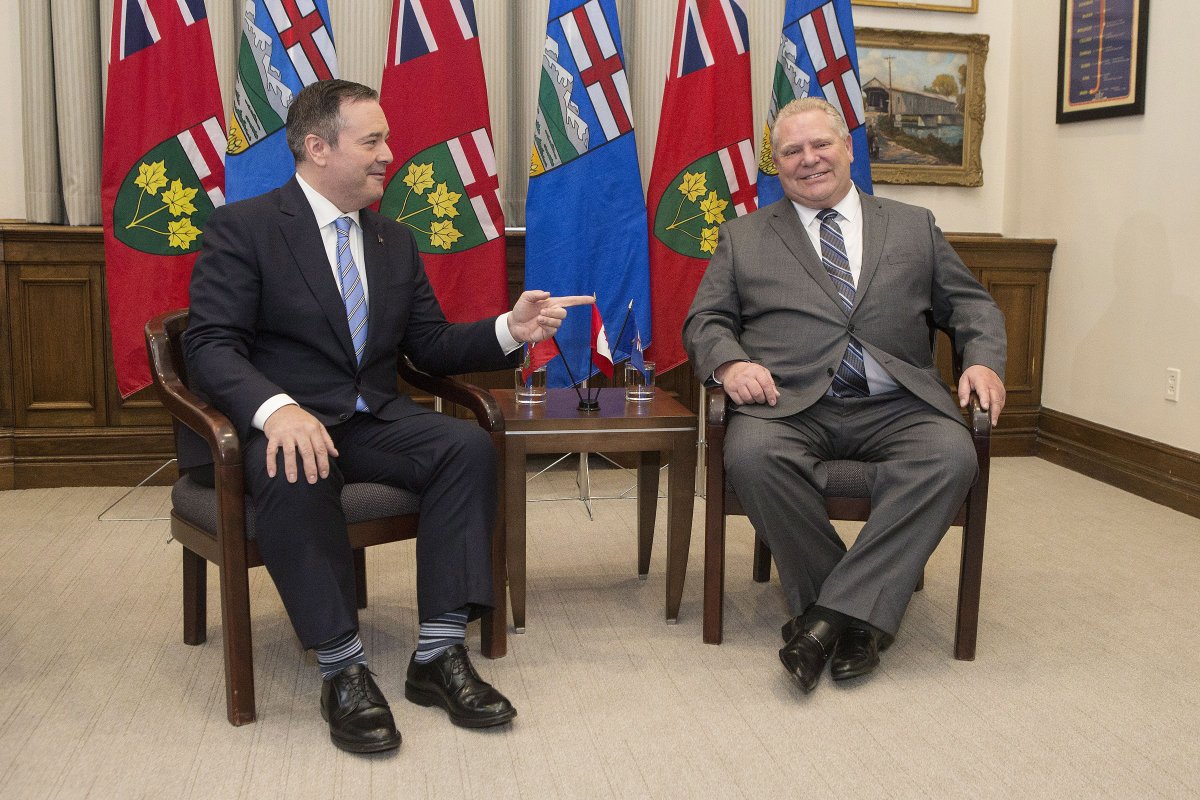While the federal government and environmental groups have applauded a second court ruling upholding the carbon tax, the Ontario government is vowing to continue the fight against it.

On Friday, Ontario’s top court ruled that the Trudeau government is within its rights to impose a carbon pricing system on provinces that do not have their own as climate change is a matter of national concern.
READ MORE: Ontario court rules federal government’s carbon-pricing law is constitutional
Environment Minister Catherine McKenna called the ruling “good news for every Canadian who believes that climate action is urgent.”
She accused Ontario Premier Doug Ford and Alberta’s Jason Kenney, who are against the plan, of continuing to waste public money battling the federal government.
The Ford government expressed disappointment and said it will seek an appeal of the ruling at the Supreme Court.
“We believe that it’s an unconstitutional tax,” Jeff Yurek, Ontario environment minister, told Global News Radio 640 Toronto.
“We believe that our own jurisdictions throughout the country are able to develop an environmental plan that takes care of reducing greenhouse-gas emissions while protecting the environment.”
The carbon tax is in effect in Ontario, Saskatchewan, New Brunswick, Manitoba and, as of next January, Alberta. Federal Conservative Leader Andrew Scheer has vowed to repeal the tax if he becomes prime minister in the fall election.

Get daily National news
Conservative governments challenging the tax argue that Ottawa is overstepping on provincial jurisdiction while imposing a policy that makes life less affordable.
The federal government argues the tax is necessary to meet Canada’s international commitments on emissions reductions and that cost of living increases will be offset through a tax credit.
WATCH: Alberta launches constitutional challenge of federal carbon tax

Friday’s ruling, like the Saskatchewan decision in May, was split.
In the sole dissenting opinion, Ontario Justice Grant Huscroft said climate change did not amount to an “emergency case” and warned against allowing rhetoric to colour the analysis. Carbon pricing is only one way to deal with greenhouse gases, he said.
“There are many ways to address climate change, and the provinces have ample authority to pursue them,” Huscroft said.
Nathalie Chalifour, a law professor at the University of Ottawa, said that even though a member of the panel dissented, even he accepted that Ottawa has the authority to implement the policy.
“They quibble under which power it’s being authorized,” she said.
The Canadian Taxpayers Federation was encouraged by the dissenting opinions in both cases.
Jasmine Pickel, the group’s interim director for Ontario, said that even if the tax is determined to be constitutional, it doesn’t mean it’s sound policy.
She pointed to a report from the Parliamentary Budget Officer that found that Ottawa needs to boost the price of carbon significantly in order to meet Canada’s climate goals.
WATCH: All revenue from the price on carbon must be returned to respective province, McKenna says

She said that in addition to the courts, the Canadian Taxpayers Federation will also fight the tax “in the court of public opinion — where we seem to be winning.”
The group was among 14 interveners in the case, including a few provinces as well as Indigenous, environmental and business organizations.
Environmental groups echoed McKenna in applauding Friday’s ruling.
David Suzuki Foundation science and policy director Ian Bruce said in a statement that the courts are “aligning with Parliament, Canadian municipalities and the public in confirming that national action is needed to tackle this climate emergency.”
- Russia’s economy is struggling from sanctions, western officials say. Here’s why
- Crown must settle with First Nations for breaching Robinson treaties: Supreme Court
- Jasper wildfire, a rate cut, Earth’s hottest days. This week’s big stories
- Trump shooting is latest in ‘very long’ global wave of political violence
“This is good news for Canadians and the Canadian economy,” lead researcher Jason Dion said in a statement.
—With files from the Canadian Press and Maham Abedi




Comments